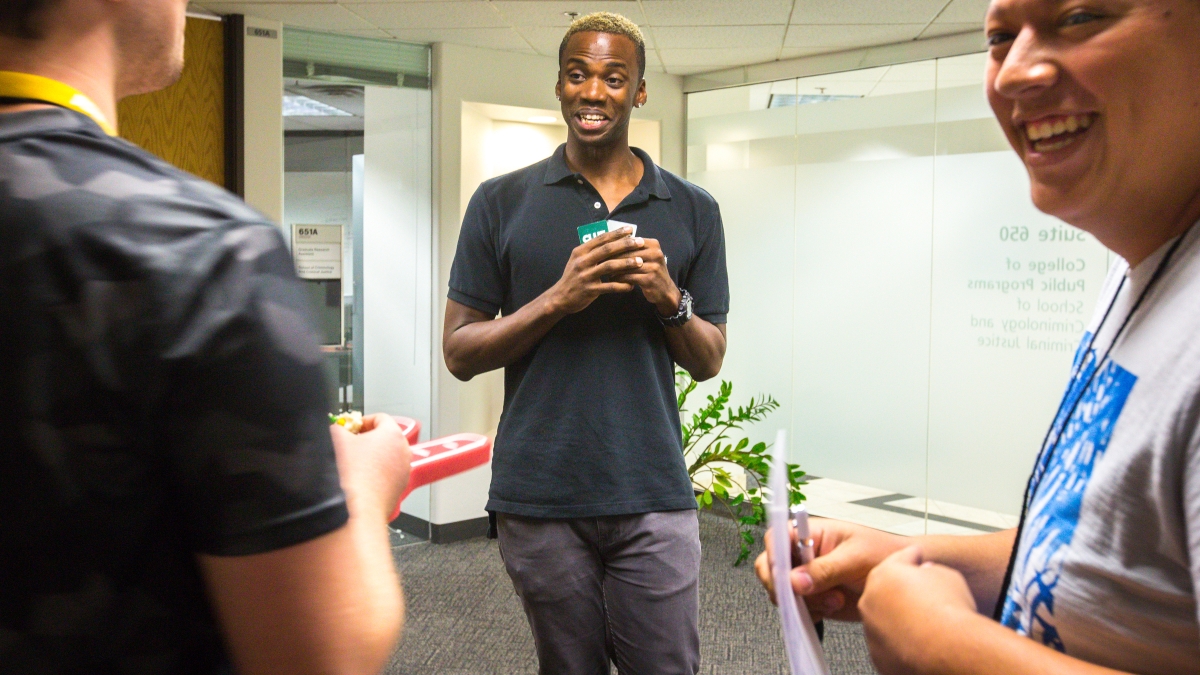Criminology students get a 'Clue' on how to succeed

Freshmen Devon Lunemann, left, and Jesus Gonzalez crack up as adviser Juan Fortenberry, center, tells them they haven't got a clue, during the School of Criminology and Criminal Justice’s team building of the game "Clue."
Editor's note: As ASU gears up for the start of classes this week, our reporters are spotlighting scenes around its campuses. To read more, click here.
The killer was Miss Scarlet with the candlestick in the conservatory.
“It’s always the candlestick,” said Austin Clemens, shaking his head.
Clemens was among two dozen freshmen in the School of Criminology and Criminal Justice who started their academic careers by sleuthing through a a life-size version of the board game “Clue.”
Teams of students wandered around the college’s offices in the University Center at Arizona State University's Downtown Phoenix campus, marking off the suspects, weapons and locations on a score sheet.
The clever game was a fun freshman ice-breaker. But it also planted the seeds for some of the most important relationships that students need to succeed.
This is the third year that newcomers to the college have played the game, which was the idea of Rachel La Vine, an academic success coordinator in the college.
“I know with freshmen there is that awkward tension, and I wanted a way to start off the year appropriately and by establishing roots with the school and each other,” she said.
“It’s a retention effort. Retention is a matter of making these connections.”
Hank Fradella, a professor and associate director of the school, emphasized that point to the freshmen before their game got under way.
“This is the advising staff,” he said, waving his arms around the room. “They’re more important than the professors. Get to know them.
“We have about 80 years of research on what makes college students succeed, and the number one thing is a good mentor.”
Fradella told the students to jump at the chance to work on important research with their professors.
“We work with police officers and parole officers and crime analysts to figure out what works and what doesn’t work,” he said. “If you want to know how the police do search and seizure or the use of force, we want to help you learn about that.”
Mikayla Petersen, a sophomore, works in the college and helped this year’s freshmen play the game by giving out clues in the “conservatory.”
She played “Clue” as a freshman last year.
“It was fun to beat the other teams and I met a lot of the friends I hang out with now,” she said.
Petersen said she grew up in a family of police officers and wants to eventually work for a federal agency, “I knew a lot of kids who went through a lot of hard times and I like to know that I can help them.”
You could say she’s giving them a clue to success.

